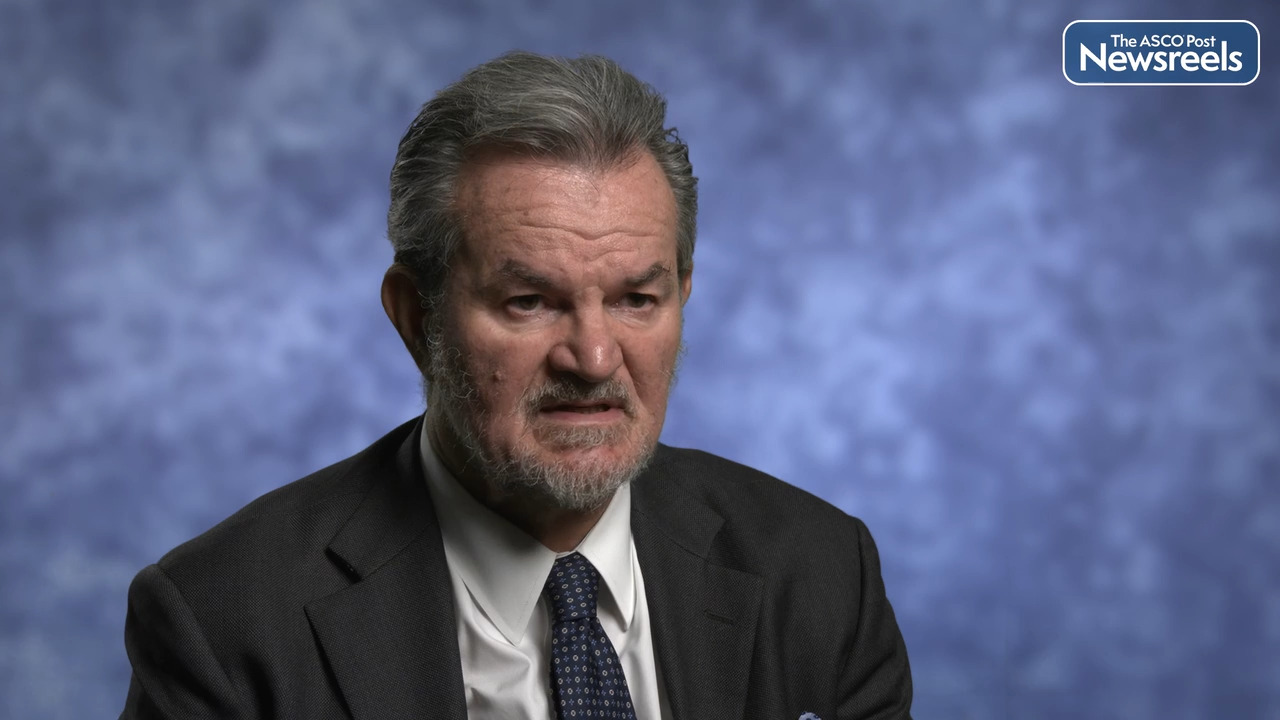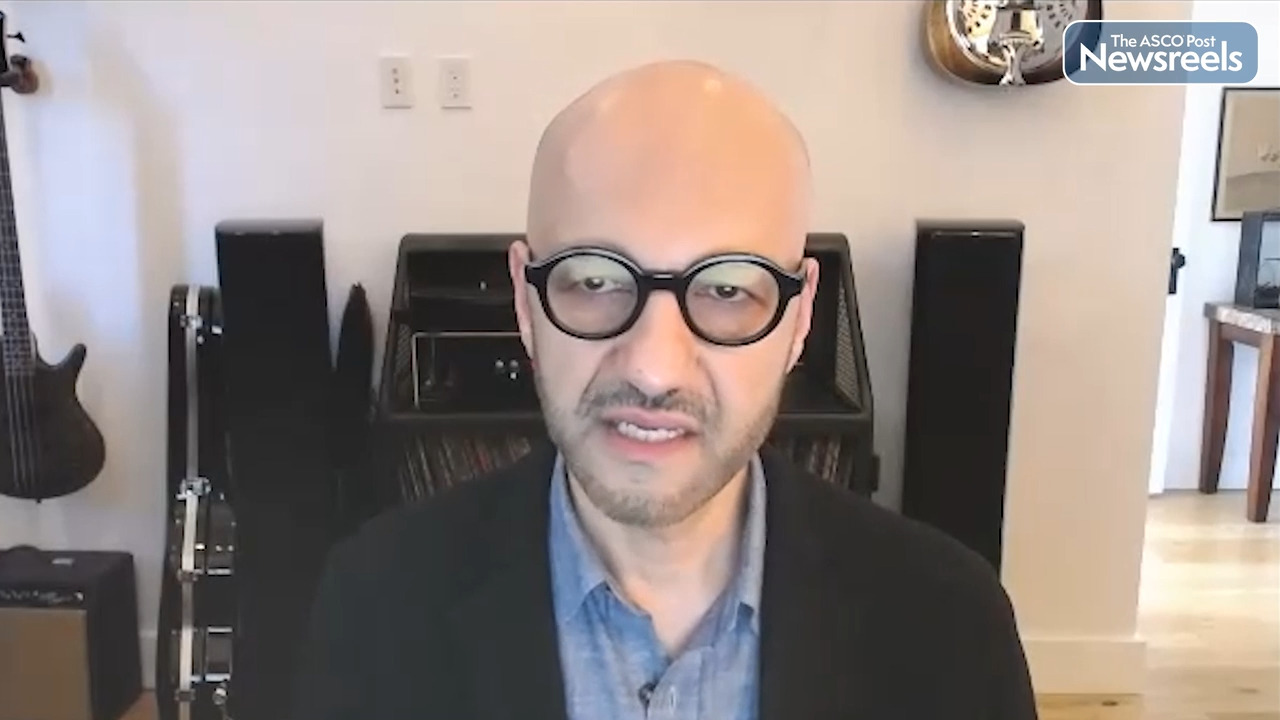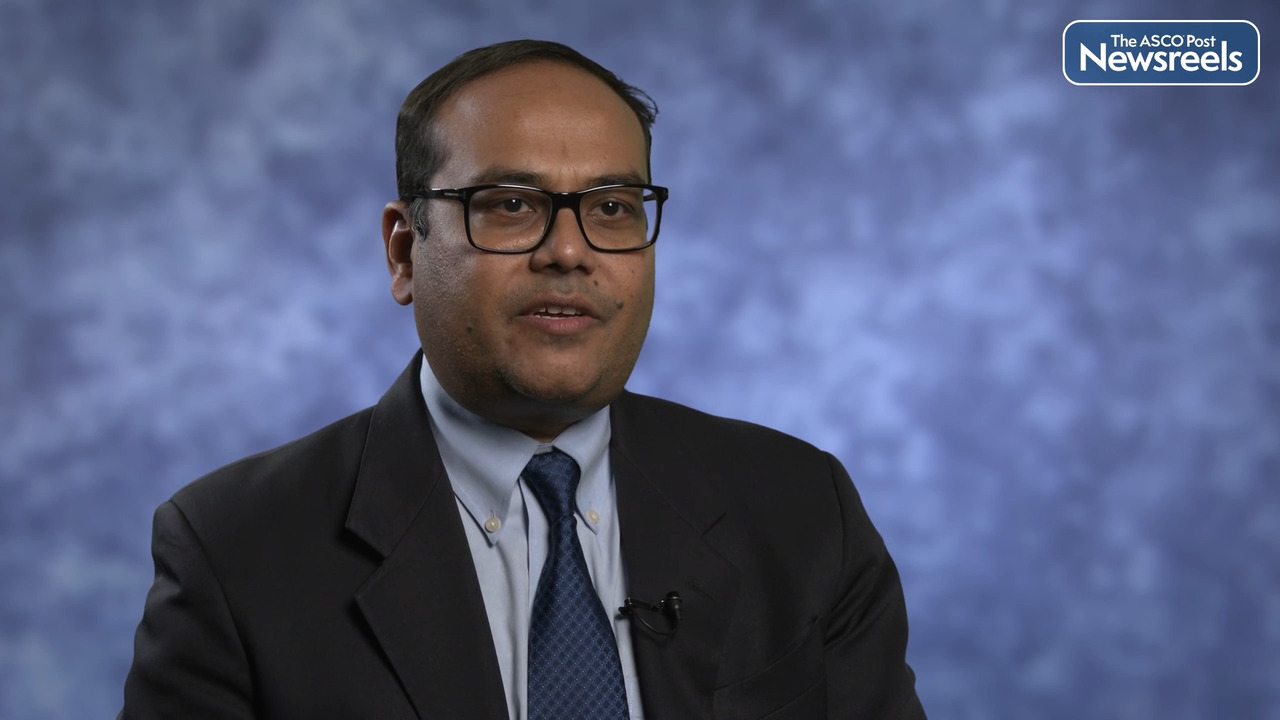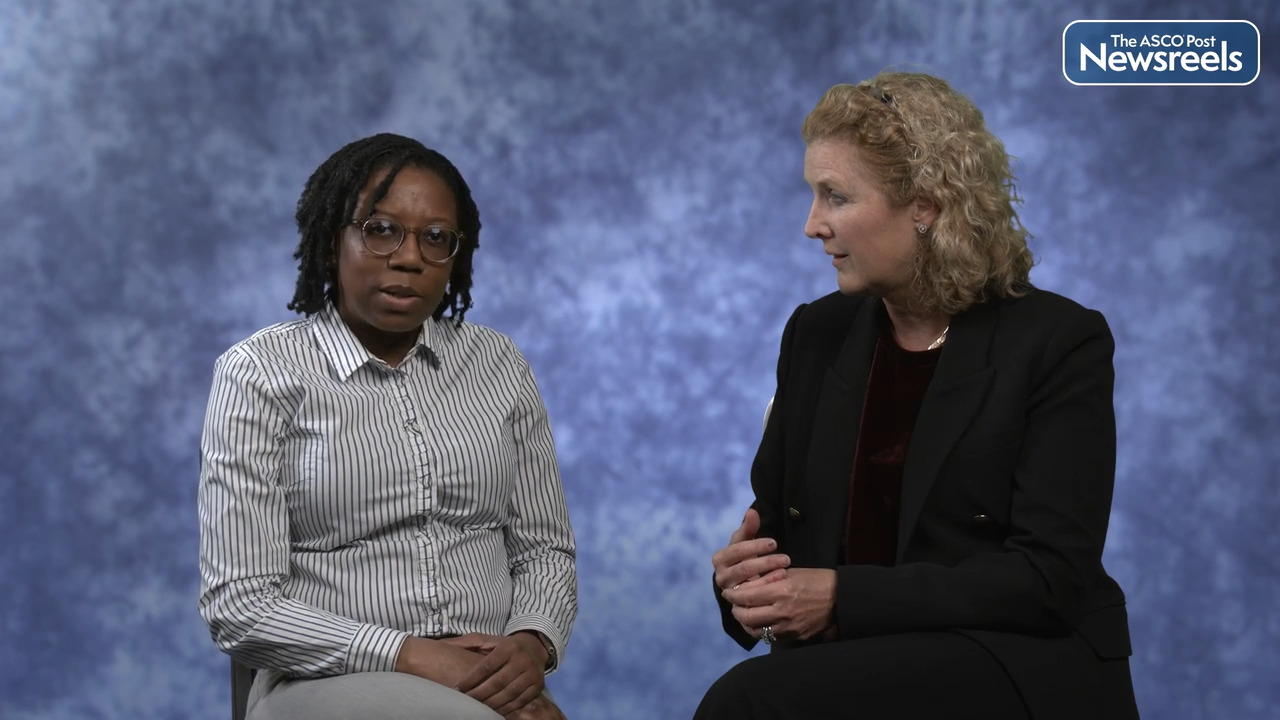Transcript
Disclaimer: This video transcript has not been proofread or edited and may contain errors.
SWOG 1207, it's a large phase III randomized control clinical trial evaluating the addition of one year of adjuvant everolimus to adjuvant endocrine therapy for the patients with high-risk forms of hormone receptor-positive, HER2-negative breast cancer.
The rationale behind the study are the results that we'll know about the BOLERO-2 trial. BOLERO-2, it's a clinical trial that use everolimus, an mTOR inhibitor, and confirmed that the use of this drug in combination with exemestane improved progression-free survival compared to exemestane alone in patients with metastatic disease. Therefore, it was very important for us to evaluate whether everolimus, in combination with endocrine therapy used in the early stage setting, could improve outcomes for our patients.
The trial, it's a cooperative group trial that enrolled patients across the nation, and we enrolled a total of 1,939 patients. Patients were randomized one-to-one to receive adjuvant endocrine therapy, physician's choice, with everolimus given at a dose of 10 milligrams daily or matched placebo.
We, in the trial, tried to identify high-risk patients. Therefore, the eligibility criteria really tried to reflect on this. Patients that underwent surgery first and had lymph node-negative tumors were eligible if they had tumors larger than two centimeters or using MammaPrint or Oncotype, had high-risk tumors. Those with one to three positive lymph nodes also needed to have high-risk MammaPrint or recurrent score greater than 25 for grade 3 tumors. All patients with four or more positive lymph nodes were eligible. Patients that received neoadjuvant chemotherapy upfront were eligible if at the time of surgery they had one or more lymph nodes involved. So it's very important to emphasize that this is a high-risk population. All the patients in the trial receive chemotherapy, either neo or adjuvant.
Once we remove ineligible patients, we had 896 patients in each arm. The arms were well balanced. The patient population with a median age of 54 years old. 32% of the patients were premenopausal.
The main endpoint of the study was the invasive disease-free survival, and what we observed is that this is a negative study. The addition of adjuvant everolimus did not improve invasive disease-free survival in our patients. We look at overall survival, and we also observed no differences in overall survival according to treatment arms.
We, however, in exploratory analysis, observe a difference in the result according to treatment arm amongst the 571 premenopausal patients. In premenopausal patients, we saw a statistically significant improvement in invasive disease-free survival and overall survival. And we think that this observation is clearly thought-provoking and hypothesis-generating.
Some other things that are important to mention about the trial is that it was associated with a high discontinuation rate. The discontinuation rate was slightly above 50% in the everolimus arm and in most of the patients it was associated to grade 3 or 4 adverse events.
In conclusion, the study was a negative trial for the primary endpoint. We do find incredibly interesting the observation among premenopausal patients.
There are next steps as part of our study. We're going to further explore the clinical findings in the premenopausal patients. And we have a team of incredible scientists that are going to be leading very interesting translational studies that are hopefully going to give us more information about what is happening, not only in the premenopausal population, but in the entire cohort, and reveal information that hopefully is relevant, not only for drugs that block this pathway, but hopefully revealing of important mechanisms of endocrine resistance.





